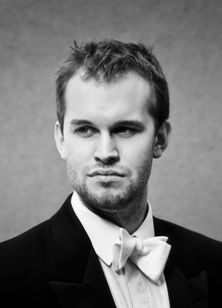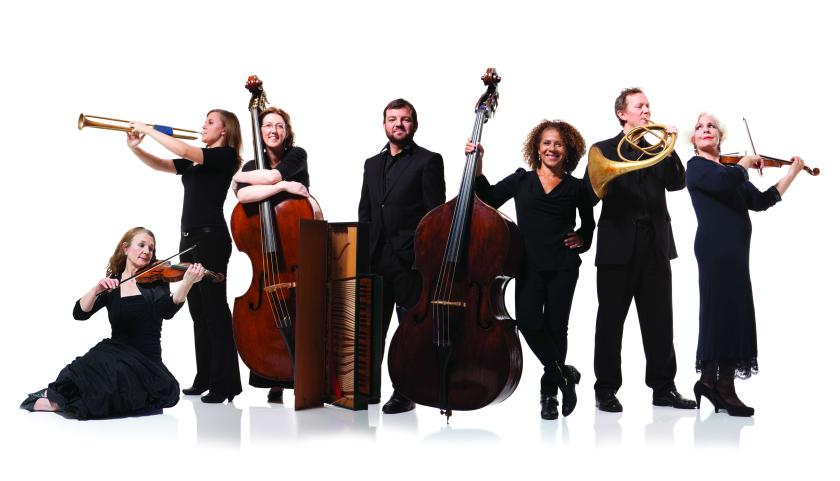Goldilocks would not have been a good conductor. There’s a reason why there isn’t a dynamic marking between mezzo forte and mezzo piano. Mezzo on its own would be a pretty bland state of affairs, sat solidly in an inoffensive state of not-too-loud-and-not-too-soft, not swelling to a crescendo or pining away to a decrescendo, but content with a steady sonic compromise. Last night the Orchestra of the Age of Enlightenment gave us a decidedly mezzo Messiah, a performance that couldn’t seem to galvanise itself into any decisive emotion.
Perhaps audiences are to blame. Or maybe concert halls. If Messiahs didn’t sell so reliably well then they wouldn’t be quite so ubiquitous. You can bet that Handel’s oratorio lurks behind most doors of the classical Advent calendar, and it’s an over-exposure that wearies the performers, turning an extraordinary piece of contemplative music-theatre into a string of musical bonbons – administered to pacify a restless audience, here for the hits.
Robert Howarth played things safe with choir and orchestra
It’s the only reason I can find for such a lacklustre performance from the OAE under Robert Howarth that never dared do more than what was necessary. The trouble started with Catherine Wyn-Rogers’ “But who may abide”, which lacked anything approaching awe. You’d think people were in the daily habit of “appearing like refiner’s fire” so casual was her delivery. Countertenors have an unfair advantage when it comes to the rapt stillness of “He was despised”, and Rogers never really made a case for her weightier mezzo tone, though the tenderness of the duet arrangement of “He shall feed his flock” came close. The RFH acoustic is unforgiving however, and the lowest passages simply didn’t carry, even to the front stalls.
 Better were John Mark Ainsley and Sophie Bevan (pictured, right), but neither on finest form. Ainsley’s lovely way with text couldn’t quite compensate for delivery that put rhetoric above beauty, letting moments that should arrest and beguile pass by uncherished. Bevan delivered the most touching performance of the evening, discovering convincing reassurance in “I know that my Redeemer” and rejoicing with animated coloratura, but the pitch of the drama was still slightly muted throughout, lacking the clarity (of tone and drama) that we’ve become accustomed to.
Better were John Mark Ainsley and Sophie Bevan (pictured, right), but neither on finest form. Ainsley’s lovely way with text couldn’t quite compensate for delivery that put rhetoric above beauty, letting moments that should arrest and beguile pass by uncherished. Bevan delivered the most touching performance of the evening, discovering convincing reassurance in “I know that my Redeemer” and rejoicing with animated coloratura, but the pitch of the drama was still slightly muted throughout, lacking the clarity (of tone and drama) that we’ve become accustomed to.
Ashley Riches (pictured, below left) is quietly carving a space for himself among more established British baritones, and here proved that he can do scampering coloratura wrath and lowering bass dread with equal skill. Narrating with operatic attention to detail, it was he who beckoned us into the story, who left us just a little less certain of the outcome of a tale we all know too well.
 Robert Howarth played things safe with choir and orchestra. Tiny details – consonants, dynamics, articulation – suggested less than meticulous preparation of the Choir of the Enlightenment, exposed in the sudden a capella nakedness of “Since by man” as less blended than the ensemble passages suggested. This crucial moment lacked that dangerous hush that can transform this mercurial passage from gimmick to musical philosophy. Was it really necessary to pause so pointedly (and lengthily) after “And he shall purify” until coughing and latecomers had done their worst? The RFH has surely seen enough of that particular trick already this month.
Robert Howarth played things safe with choir and orchestra. Tiny details – consonants, dynamics, articulation – suggested less than meticulous preparation of the Choir of the Enlightenment, exposed in the sudden a capella nakedness of “Since by man” as less blended than the ensemble passages suggested. This crucial moment lacked that dangerous hush that can transform this mercurial passage from gimmick to musical philosophy. Was it really necessary to pause so pointedly (and lengthily) after “And he shall purify” until coughing and latecomers had done their worst? The RFH has surely seen enough of that particular trick already this month.
The orchestra performed solidly, moments of gilded brilliance from the brass tempering slightly soft-focus strings. Had I heard this performance on the radio while wrapping Christmas presents and decorating the tree I’d have been more than satisfied. But as a foreground entertainment, a three-hour weeknight commitment, it simply didn’t make its case.













Add comment